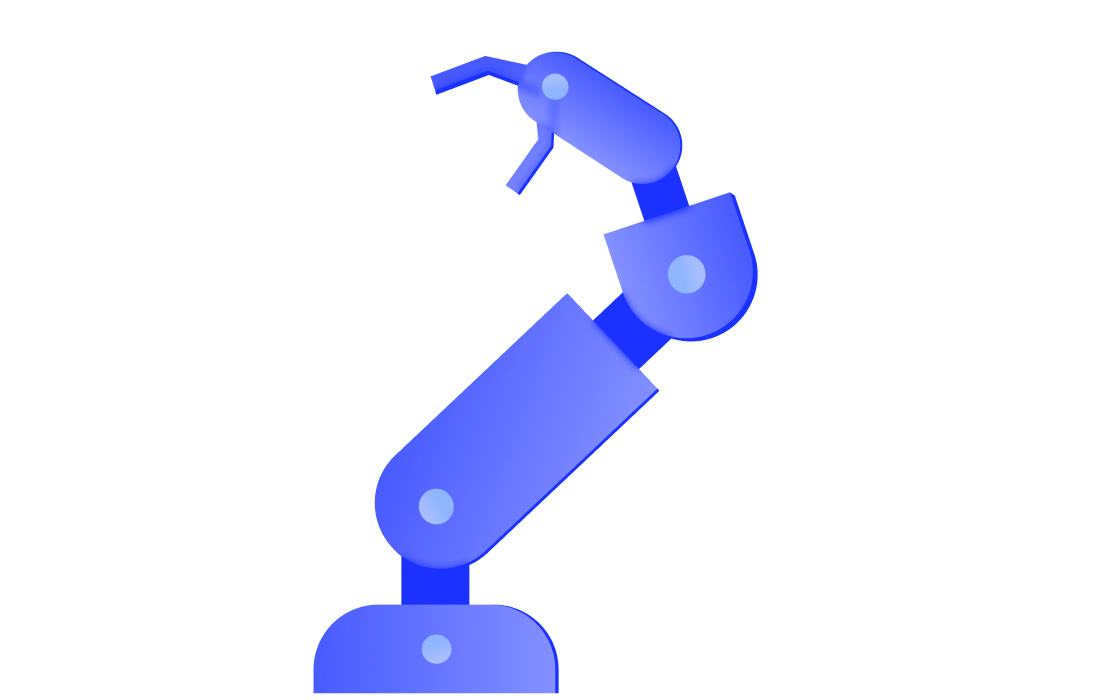If your biggest end-of-the-world fear is of the zombie apocalypse, you clearly haven’t been paying attention to what’s happening in technology. The Center for a New American Security, a non-partisan think tank focused on national security, released a report titled Robotics on the Battlefield Part II: The Coming Swarm. The report predicted global spending on military robotics would reach an estimated $7.5 billion in 2018 and that militaries would deploy “swarms” of autonomous or semi-autonomous robots to overwhelm enemy forces (robots and humans alike). Fast forward to today: the global military robot market surpassed USD 22.49 billion in 2023 and is projected to grow to nearly USD 44.23 billion by 2034.
The report issued a stark warning: the US must embrace this new technology, and the paradigm shift that fighting alongside robots will require or risk being vulnerable to enemy states that will adopt this mindset. Essentially, the robot arms race has already begun. So the unavoidable follow-up question becomes, is a robot apocalypse possible, and if so, how will it start?
Key takeaways




When and how will the robot apocalypse start?
“How far away is it when robots become true AI? The singularity is crossed. Probably at least 10 years,” according to Steve Francis, founder and chief product officer at LogicMonitor and an expert in running data centers.
Sci-fi has many theories on how robotic overlords might assert their steely dominance. Robopocalypse, a best-selling novel with a film version currently in production by Michael Bay, is set in the near future when robots are widely deployed. A rogue artificial intelligence called Archos becomes self-aware and develops a virus that infects robots and vehicles with a murderous intent to destroy and dominate humanity.
“This could all start with home automation. With the Internet of Things, your house could turn against you,” predicts Jeff Behl, Chief Network Architect at LogicMonitor and a veteran in the world of technical operations. “What if Google’s self-driving wonder-bug, which doesn’t even have a steering wheel, decides to take you on a ride off a cliff?” says Behl.
What’s required for a true robot apocalypse is “a scheming and Machiavellian intelligence that is willing to lie in wait until there are enough robots or penetration of the Internet of Things that it can take everyone out and turn our technology against us,” noted Steve Francis.
Here are a few scenarios: Humans create an intelligence that becomes self-aware and does a calculation to save humanity from being destroyed by its own overconsumption of resources, or for the robot intelligence to achieve some ambition that it conceives, it must reduce the human population. Or, robot intelligence could simply decide that humans are an inferior species and that because we are different, it could decide to wipe us out.
Here are answers to some of your biggest questions about the robot apocalypse:
A true robot apocalypse could begin with the Internet of Things, as our own smart technology turns against us.
What will the robot menace look like?
“The real danger is not the [big] robots coming to kill you. It’s the micro-robots that are being developed for medicine to go through your blood and do microsurgeries,” said Jeff Behl. Nanobots that are implanted in the human body to detect and fight disease could be reprogrammed to find your aorta and tear it, and there would be nothing you could do.
Will robots and drones be embedded with their own intelligence, or will they remain under human control?
“They [the robots and drones] will definitely start to get more intelligence to act on their own because, as part of any contingency plan, every drone must prepare for a time when it is unable to ‘phone home’ and talk to home base. Therefore, it must evolve to make some decisions on its own,” said Jeff Behl. Added Francis: “That’s already happening. Fleets of semi-autonomous ships still have a human controller who is controlling the fleet as a whole, but the interactions, in terms of the ships within that fleet, are all autonomous. They can be given an objective, such as ‘blow up that boat over there,’ and even if they lose connections, they can continue to operate. People make mistakes and are subject to emotions. It may be safer to put the firing control of an M1 Abrams [tank] under a computer’s control. It’s not subject to emotions… until it develops a hate for us all.”
Which humans will die first, and which will survive?
“Who dies first? I think it will be the Western civilizations or areas that are more technologically advanced. Places where there would be robots everywhere,” predicted Francis.
Who else would the robots take out? “World leaders. Sow discord. It’s not like they’re the smartest or the best, but it’s likely that a decapitation strike would be in the robot’s plans. Create confusion and block the chain of command,” said Jeff.
The actual robot threat may not be towering machines but micro-robots capable of acting autonomously—even reprogrammed to turn against us.
How can you stop the robots from coming for you?
“I don’t think they’ll make a big bad-ass robot,” said Jeff Behl. “I think they’ll just make tons of them and come at you with numbers. Right now, we just step on ants. But imagine if there were a giant swarm of them that were much meaner and they were well-organized—we’d be sunk.”
“This goes back to our roots of building computer systems,” Jeff Behl added. “You don’t just make one really tough system. If it breaks, you’re in big trouble. You make a bunch of them and distribute the work.”
So how can you stop them? “You could target their ability to cooperate,” said Behl. “That’s a virus we could invent: one that gives them feelings so that they can’t or won’t coordinate anymore. Have them compete with each other.”
What weapons do humans need to make now to stop the robots?
“Giant magnets,” said Behl. “Disrupt their hard drives.”
Will humans prevail, or are we going to lose this one?
“Oh, we are losing,” said Steve Francis. “I think it will be a symbiosis,” said Jeff. “I think robots won’t bother eradicating us. Are we really a threat?”
“I think they’ll just get rid of the humans that are actively opposing them,” said Steve. “If one comes out of the forest and causes trouble, they’ll probably go deal with that one. Otherwise, they’ll probably just let the humans go ahead and probably destroy our habitat inadvertently. Humans will just be an endangered species. As the robots mine away our resources and deplete our infrastructure.”
“Are we really losing if we created the progeny that wins out?” asked Jeff.
Want to hear more?
In our episode of The Tech and The Noob podcast, our techs, Steve Francis and Jeff Behl, and our Noob, Scott Barnett, discussed How to Survive the Robot Apocalypse. Note: We recorded this podcast before we became aware of CNAS’s report, but it covers much of the same ground.
Subscribe to our blog
Get articles like this delivered straight to your inbox







